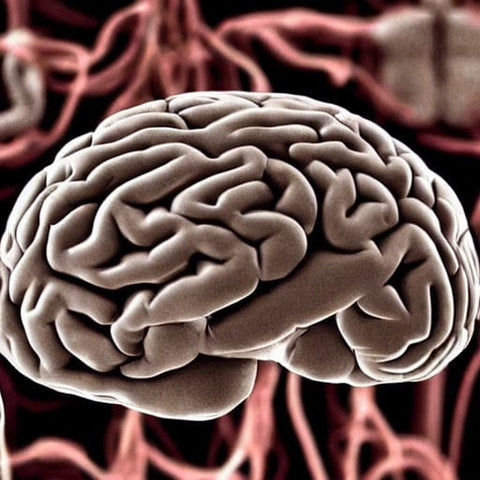What are the Advantages of Grounding?
Earthing is a method that may be used to enhance one's health and decrease stress that is not only simple but also calming and beneficial. Visit a health professional or a retailer online now if you are interested in earthing and would want to learn more about the benefits it may provide for you.
- Reduce Inflammation: Earthing may help decrease inflammation in the body, which is known to be a key contributor to many chronic illnesses. Inflammation is thought to be caused by electromagnetic fields.
- Increase Sleep Quality: The body's synthesis of melatonin, a hormone that plays a role in the regulation of sleep, may be improved by earthing, which has also been shown to increase the quality of sleep.
- Relieve Stress: Some individuals believe that earthing may help relieve stress and enhance mood by stimulating the synthesis of serotonin, a chemical in the brain that is involved in the regulation of mood. Other people don't believe that earthing has any effect on mood or stress levels.
- Improve Nitric Oxide: Increased synthesis of nitric oxide (a chemical that helps relax and widen blood vessels) may contribute to improved circulation when earthing is practiced.
- Lower Joint Pain: Earthing has been shown to help decrease inflammation and increase circulation, two factors that contribute to muscle and joint pain. As a result, earthing may help lessen the amount of muscle and joint pain experienced.
Physiology
Surprisingly unexpected are the positive effects that earthing, also known as grounding, may have on one's health. The practice of grounding is a non-invasive, all-natural, and uncomplicated method that may decrease inflammation, lessen chronic pain, enhance sleep, and boost vitality.
Electrons that come from the earth have the ability to cancel out the damaging effects of free radicals, which are a natural byproduct of the biochemistry of living things. In addition to this, they reduce persistent inflammation, which is often the underlying cause of chronic disorders.

Earthing also seems to aid in the healing of wounds. In one of the studies, the participants were instructed to remain sedentary for thirty minutes each day for fourteen days. After one week, individuals reported feeling 80% better in terms of the discomfort.
A number of investigations on the physiological aspects of grounding were carried out by a team of researchers. Their findings are now being discussed within the scientific and clinical communities. These results have presented researchers with a fresh perspective on inflammatory research.
Earthing may have a substantial impact on the inflammatory response of the brain as well as other physiological systems. Using this strategy has been demonstrated in studies to alleviate chronic pain, enhance blood flow, reduce edema, and regulate stress hormone levels.
Many illnesses that are associated with aging have chronic inflammation as a common underlying cause. When a condition that causes inflammation progresses through its course, it leaves the body open to a number of different problems. As a result, it is essential to keep one's body in good condition by minimizing inflammation and ensuring that one has enough diet, physical activity, and relationships.
A reduction in the frequency of cardiovascular events, an improvement in energy levels, and reduced edema are all connected with grounding. Earthing may also be beneficial for regulating blood sugar levels, as shown by the findings of several research.
Twenty separate research have all shown evidence of physiological benefits. Even while not all of these studies had enough participants to be able to make any conclusions, the vast majority of them did have at least a few, and several of them went into great detail.
Investigation into the efficacy of earthing as a therapeutic strategy for lowering inflammation is an exciting new area of study. The implications of these discoveries for disease prevention, public health, and treatment of chronic inflammatory conditions are many.
Wellness both mentally and emotionally
Earthing, also known as grounding, is a practice that has been the subject of a significant number of research and shown to have several advantages on mental and emotional health. These include improved quality of sleep, increased blood flow, less inflammation, and a rise in energy levels.
Researchers have shown that spending time in natural settings increases both attentiveness and empathy. Additionally, it has the potential to help relieve stress and boost happiness.
The practice of earthing is an uncomplicated, cost-effective, and straightforward technique to improve one's general health. The method entails either going barefoot while outside or making use of an inside grounding device.
The practice of earthing dates back hundreds of years. However, it has only in relatively recent times come to the attention of the general public. People are more conscious than they have ever been of the risks associated with spending an excessive amount of time inside.
Research has indicated that earthing may have a beneficial effect on stress, anxiety, and depression. In addition to this, it may potentially protect you against getting certain disorders.

In point of fact, the Mental and Emotional Health as a Critical Component of Physical Health has been Defined by the World Health Organization (WHO). Since depression is one of the top causes of disability across the globe, it is a good idea to educate yourself on the many ways in which you may improve your mental health.
Learning about the advantages of nature and finding methods to make it a more regular part of one's life are two of the most effective strategies to boost one's mental and emotional well-being. This is something that is crucial for both you and your family. Spending more time in the great outdoors may be accomplished in a variety of ways, such as by going for a stroll in the forest, meditating in a garden, or engaging in outdoor activities with your children, such as playing catch.
Emotional well-being may be conceptualized as a dynamic condition of internal homeostasis. When your emotions shift, so does your physical self. People who keep their emotional health in good shape are able to surf the waves of emotion without being entangled in the mess.
Adverse reactions
A lot of individuals aren't aware that earthing may cause all kinds of other negative side effects. A few examples of these unwanted consequences include discomfort, exhaustion, and anxiety. However, there is evidence to suggest that grounding might favorably influence the body's capacity to repair itself.
The positive effects look to overcome any negative effects
It's possible that the electrical conductivity of the body's tissues also plays a role in immune defense processes. Additionally, being in an environment where the Earth's electrical potential is present may assist in the reduction of inflammation, the improvement of circulation, and the enhancement of oxygen supply to the cells in the body.
There have been a few studies that have investigated the impact of grounding on a variety of chronic conditions. A number of these trials demonstrated a decrease in both the levels of pain and inflammatory markers found in the blood. The advantages cited by others ranged from somewhat little to extremely significant.
A research done in 2007 found that those who were grounded had a more regular rhythm of cortisol release in their bodies. This is significant because it mirrors the natural rhythm that occurs inside the body.
Another research investigated the impact of grounding on the amount of blood flow to the face. The researchers came to the conclusion that the higher surface charge of red blood cells decreases the clumping and viscosity of blood, which in turn allows for greater transport of nutrients and waste products throughout the body.
In the human body, free radicals may be neutralized by the free electrons that are abundant on the surface of the earth. In addition, they have the ability to reduce the thickness of the blood.
These results lend credence to the hypothesis that inflammation is, at its root, caused by an electron deficiency in the body's tissues. It's possible that emotional and cognitive issues, in addition to exhaustion, might be caused by chronic inflammation.
One of the most fascinating discoveries made by this collection of research is that the free electrons of the Earth have the ability to reduce chronic inflammation. Antioxidants and other tried-and-true treatments don't always work to eliminate chronic inflammation.
A method of therapy for mental health issues is called "grounding."
People who are struggling to deal with difficult feelings may find that grounding is an effective type of mental health therapy. Concentrating on one's immediate surroundings and bringing one's mind and body back to the here and now are required steps in this practice.
Even though there are a lot of various ways to ground yourself, you should be aware that they all operate in a somewhat different way. Because of this, it's a good idea to test out a couple of them before moving on to something completely different.
Concentrating on something you like doing is an excellent example of a grounding strategy. You may do this by visualizing a certain shade of color, location, dish, or item. You might also make a graphic list of the things that you like.
One other option is to have a full body scan. You may get some insight into your present state of being via the use of a simple activity known as a body scan. You may lessen feelings of anxiety and tension by purposefully connecting with each of your five senses.
During a panic attack, a grounding practice is not only useful for the obvious reasons, but it is also an efficient approach to de-stress. If you notice that you are beginning to perspire, clench your fists, or take deep breaths, these are all signs that your body is reacting to the stressful scenario that you are in.
Remembering that grounding is not a replacement for receiving medical assistance is the single most crucial thing to keep in mind with this practice. It is in your best interest to seek the advice of a trained expert if you have extreme anxiety, depression, or panic attacks.
Even while grounding techniques aren't miracle cures, they may be an extremely beneficial addition to a toolbox that's already full of effective coping tools. They have the ability to help you remain calm in times of stress and even have the potential to assist you in developing resiliency.
There are a lot of different grounding methods, and you can learn about them all on the internet or in a therapist's office. While some of them may be completed in a short amount of time, others need more effort. It is possible that you will decide to utilize a mix of these strategies depending on the specifics of your scenario.
When using a grounding method, the single most crucial piece of advice to keep in mind is to go at your own pace and show patience at all times. Not only will you feel better as a result of this, but also your mental health as a whole will significantly improve.
Consider your favorite seat in the house as a means of doing a grounding practice. Imagine it's wrapped in your favorite blanket or pillow.
Grounding promotes sleep
The practice of grounding helps people get better sleep by lowering stress levels, restoring cortisol balance, and settling the autonomic nervous system. Additionally, it lessens both pain and inflammation, which in turn helps the body repair.
The practice of connecting your body to the Earth is referred to as grounding. Grounding may take place in a variety of ways, including strolling barefoot on a grassy park or beach, kicking off your shoes, or making use of a grounding device.
A research involving 60 participants who suffered from chronic pain discovered that grounding helped enhance their quality of sleep. During the course of the experiment, each subject was given a grounded sheet set and instructed to sleep while wearing a conductive mattress pad. They were also asked to describe any symptoms they had throughout the test time.
All of the people who participated in the study reported having better sleep after practicing grounding. Those who had a restful night's sleep reported an improvement in their level of discomfort all but three times. Also, the majority of people reported a considerable reduction in their levels of stress.
Other research has found that those who suffer from sleeplessness, sadness, and anxiety may benefit from practicing grounding techniques. According to some studies, it could even help prevent people from getting heart disease.
In a study from the University of California, Berkeley, researchers assessed the zeta potential, a marker of stress and tiredness, in 10 volunteers who had been grounded for two hours. According to their findings, there was a 2.7-fold rise in the amount of zeta potential.
A research that was conducted at the Chopra Center in Carlsbad, California, uncovered further evidence supporting the positive effects of grounding. There have been a number of movies made that contain interviews with patients who have used grounding treatment and found it to be beneficial.
Other research have indicated that grounding promotes sleep by reducing cortisol levels. Insufficiency in sleep and an increased risk of cardiovascular disease have both been linked to elevated cortisol levels.
The stress response of the body is significantly influenced by the hormone cortisol. As a consequence, excessive cortisol levels may contribute to poor sleep, sleep disorders, and even depression.
Chronic stress may increase the creation of free radicals, which are destructive consequences of cell damage, illness, and hazardous surroundings. When you connect your body to the Earth, the Earth's mobile electrons enter your body and help to soothe the nervous system. These electrons have also been shown to have an anti-inflammatory effect.
Stress is reduced by grounding
The use of grounding techniques is highly recommended as one of the most effective methods for stress management. When you're experiencing feelings of anxiety, one of the most essential things you can do is to connect with your body and concentrate on the here and now. These strategies may help you achieve both of those things.
There is a wide variety of training methods available for grounding, ranging from meditation to physical activities. You will be better able to get your mind off of the things that are causing you stress and worry if you do a couple of these exercises on a daily basis.
The easiest way to get started with grounding is to start simple. You should begin by playing a straightforward game that brings your attention to the here and now as well as the world immediately around you. You may, for instance, count all the way up to seven, or you could state the temperature in the room.
You might also try participating in more sophisticated workouts, such as completing arithmetic problems. This has the potential to be an excellent diversion for you as well as an effective method for assisting your brain in relaxing.
Not only is grounding a powerful method for assisting in the recovery of your body, but it may also assist you in concentrating on your feelings and enhance your mental health. You will be able to better control your stress, and your likelihood of having a panic attack will go down as a result.
You are free to use these strategies on your own or to seek the assistance of a professional therapist or counselor. Anxiety is a mental condition that requires significant treatment and should not be ignored. It's possible that some individuals may need medicine, while others will need assistance in managing with their symptoms.
Additionally, grounding may be an effective method for reducing the symptoms of mental health conditions such as depression and trauma. Studies have demonstrated that mindfulness-based stress reduction programs may help lower symptoms of both of these conditions.
Exercises that help you connect your mind and body to the here and now might be beneficial for those who suffer from post-traumatic stress disorder (PTSD). Utilizing strategies such as these may be an important first step towards being healthier and happy with oneself.
Taking long, slow breaths, singing, and meditating are three of the most powerful grounding techniques. It has been shown that each of these behaviors relieves stress and lessens the signs and symptoms of distress.
On the subject of the advantages of carrying out these exercises, a significant amount of study has been carried out. In fact, a comprehensive 2014 analysis contained roughly 19,000 research on the issue.
Grounding has a positive effect on hormones
Grounding is an uncomplicated, natural, and effective technique to enhance your health and boost your vitality. You can ground in a room, at home, or at your business.
One of the many health advantages of earthing is a decrease in inflammatory and painful symptoms. In addition to this, it helps keep your hormones in check. This includes the steroid hormone known as cortisol, which is involved in the body's reaction to stress.
Cortisol levels are greater during the day, and lower at night. Continuous exposure to excessive doses of the hormone may result in adverse health effects. Stress may cause a rise in both your heart rate and your hormone levels, both of which can contribute to an increased risk of cardiovascular problems such as heart attacks and strokes.
Grounding normalizes cortisol levels. It improves the quality of sleep you get and lowers your stress levels. A sufficient amount of sleep is necessary for lowering the chance of developing a chronic health condition.
Earthing may also assist you in maintaining healthy blood pressure levels. One research that was published in the journal Alternative Therapies in Health and Medicine discovered that grounding resulted in a considerable drop in blood pressure.
After being grounded, damaged muscles had lower amounts of the enzyme creatine kinase, according to the findings of another research. In addition, the research found detectable changes in white blood cell concentrations.
Neutrophils are a kind of white blood cell that are responsible for helping the body encapsulate harmful bacteria. They strengthen the immune system and guard the body against illness. Because of this, your body dispatches more neutrophils to repair the cells that have been injured.
Inflammation may be brought on by a variety of circumstances, one of which is an excess of hormones. Inflammation throughout the body may be caused by having high amounts of the stress hormone cortisol. It will be easier for your immune system to fight off infections if you get your cortisol levels back to normal.
Multiple studies have indicated that persons who frequently engage in grounding practices have higher levels of energy and have lower levels of stress. It is possible to feel more energetic and peaceful if you increase your energy and take steps to reduce your stress, which is a fantastic advantage for your general health.
Some folks even claim improved sleep. A 2012 research indicated that grounding helps alleviate discomfort.
In other recent study, the effects of earthing on hormones have been investigated. These studies have shown that earthing helps relieve hormone imbalances, reduce stress, and raise one's energy levels, among other benefits.
Earthing on a neutral plane
Grounding is an essential component of an electrical system because it helps maintain the system's balance in addition to reducing the risk of electrical shock. It achieves this result by redirecting leakage currents and turning a fault current's activity in the opposite direction. Additionally, earthing is thought to assist in the process of restoring the body's natural energy balance.
Earthing systems may be broken down into two primary categories. The first kind is a straightforward setup, which consists of only two protecting earth cables and two neutral conductors in a single building.
These methods are used, for the most part, in the construction of structures. In addition to this, they have uses in the industrial sector. IEC standards are used in the construction of these systems in a number of different nations. The United States of America, the United Kingdom, Australia, New Zealand, France, and Japan are all examples of these countries.
Multiple earthed neutral links are a kind of system that exist in buildings and consist of more than one protective earth wire and a neutral conductor. In most cases, an overhead electrical line will use this particular sort of arrangement. To secure the links to one another, either one or more screws are employed. On the other hand, in order to conduct tests, they may be removed.
The IEC 60364 standard, which codifies the placement of neutral and protecting earth conductors in receptacles and buildings, is used by these systems for the most part. Using these guidelines as a guide, there are a variety of approaches that may be used to set up a grounding system.
Induces alterations in physiological state
Earthing is a straightforward and all-natural method that may alleviate persistent pain and inflammation. Free radicals may be neutralized by the flow of free electrons emanating from the Earth. This brings about a reversal of the inflammatory process and helps the body repair.
Earthing is a straightforward and risk-free approach of alleviating stress and facilitating better sleep. It is also possible that it has a favorable influence on risk factors for cardiovascular disease.
In addition, one night of grounding was proven to lessen the key indications of osteoporosis in a research that was conducted not too long ago. In addition, a research that was conducted in 2014 looked at the impact of connecting the body to the soil while sleeping on blood flow, the operation of the digestive system, and the flow of lymph.
According to the findings of one research, the beneficial benefits of earthing on cardiovascular health may be due to the natural blood-thinning effect that it has. It is anticipated that an inflow of electrons would regulate the body's antioxidant response as well as reverse acute inflammation.
A shift in the storage of ions inside cellular membranes may occur as a result of contact with the Earth. In particular, a lower Zeta potential, which measures the intensity of the negative charge carried by red blood cells, suggests that the viscosity of the blood has decreased. Because of this, there will be less clotting and greater circulation of the blood.
Brings down inflammatory levels
Research has revealed that earthing may help decrease inflammation throughout the body. This is due to a number of different factors. The first benefit of earthing is that it helps to neutralize the free radicals that are the root cause of chronic inflammation. Additionally, it causes an increase in the body's total amount of antioxidants. Your immune system may benefit from earthing, and it can also help reduce your chance of developing cardiovascular disease if you do it regularly.
According to the findings of several research, earthing may also help relieve chronic pain. After just a few weeks of earthing, one lady who suffered from diabetes noticed a significant decrease in the intensity of her discomfort. In addition, one research discovered that after two weeks of grounding, an open wound that had not been healing properly was completely healed.
Getting grounded enhances blood flow, which in turn reduces pain and tension in the muscles. Athletes may recover from their workouts more quickly and push themselves farther with this supplement. Grounding yourself on a daily basis will help lessen the likelihood of you catching a cold, the flu, or suffering headaches.
Additionally, grounding improves the flow of oxygen throughout the body. It is possible to increase circulation and lessen the likelihood of these cells clumping together if the size of your red blood cells is decreased.
Free radicals are potentially dangerous molecules that hasten the aging process and contribute to a wide variety of inflammatory-related disorders. They are also known as reactive oxygen species. These molecules may be neutralized with a little assistance from the free electrons that are found on the surface of the earth.
Pain
If you are experiencing pain and discomfort, you may be curious about whether or not earthing might be of use to you. There is a growing body of research suggesting that earthing might speed healing and lessen pain.
The reduction of inflammation is one of the primary advantages that comes with practicing grounding. Inflammation that persists over time is a frequent contributor to the development of chronic diseases. A deficiency of electrons in the tissues is the root cause of inflammation. The positive charge carried by free radicals is cancelled out by the electrons. If your body does not have enough electrons, it will start attacking the healthy tissue surrounding it, which can result in pain as well as other symptoms.
Earthing also has the effect of increasing circulation and improving blood flow. Your body is able to more effectively transfer nutrients and waste products thanks to improved circulation. This enhances the quality of your sleep, as well as your energy levels, and it also helps minimize edema.
Earthing has even been shown to be beneficial to mental health. The practice of earthing has been shown to have a soothing impact on the mind, according to research. As a result, you may experience less tension and anxiety, as well as improved sleep quality.
Your body may be able to repair itself more quickly and completely if you regularly engage in grounding practices. You may do it inside or outdoors. Grounding oneself for approximately half an hour each day, especially in natural surroundings, is an easy way to get started.
Stress
You should give earthing a try if you are seeking for the most effective method to relieve stress in your life. This is a simple method that won't break the bank but will have an effect on your general well-being.
You may connect with Earth by either sitting on a conductive surface, such as the ground or a concrete deck, or by walking barefoot on damp grass or soil. It's a straightforward strategy that's been shown to cut down on stress while simultaneously boosting productivity.
Incorporating earthing into your overall health and wellness regimen is a smart idea for a number of reasons. Earthing is beneficial for a number of reasons, including the possibility that it can help you prevent high blood pressure and other cardiovascular issues. In point of fact, a research that was carried out in the state of California revealed that continued usage of earthing procedures might bring about a reduction in blood pressure.
Making sure that you have the appropriate conductive surface at available is the most effective method to enjoy the advantages of this easy technique that everyone can do. This method works particularly well when performed with a mixture of seawater and sand.
Investing a few minutes in a natural body of water might be a beneficial alternative to consider as well. This confers a variety of advantages, chief among which is an improvement in circulation and blood flow.
In the autonomic nervous system, make the transition from a sympathetic tone to a parasympathetic tone.
One of the two divisions that make up the autonomic nervous system is the sympathetic nervous system. This system is also known as the "fight or flight" system (ANS). It controls the body's first, automatic reaction to conditions that are stressful to the body. When the body feels threatened, the sympathetic nervous system secretes adrenaline, a hormone, as well as other chemicals connected to stress, into the circulation. These chemicals cause the heart, lungs, and other organs to work more quickly.
On the other hand, the parasympathetic nervous system is in charge of controlling digestion and other tasks of everyday life that need far less energy. This process also contributes to a reduction in the likelihood of developing coronary heart disease.
The vagus nerve, which extends from the brain all the way down to the abdominal organs, is responsible for regulating parasympathetic activity. The rate of the heartbeat, the pace of respiration, digestion, and other activities are all affected by the vagus nerve.
The autonomic nervous system (ANS) is in charge of practically all of the cells and organs in the body's regulation. On the other hand, if it is hyperactive, it may be a source of difficulties with both one's physical and mental health. Some people have symptoms such as anxiety, headaches, and even difficulties with their cardiovascular system.
Maintaining a healthy equilibrium between the sympathetic and parasympathetic nerve systems is critical to one's well-being. A lack of enough parasympathetic activity might cause symptoms that are similar to those of post-traumatic stress disorder (PTSD).
The possibility of receiving an electric shock is decreased by bonding
The uniting of two or more conductors, often metal, is what is meant by the term "bonding." The procedure is an effective approach to reduce the possibility of receiving an electric shock. Additionally, it is an efficient method for preventing the accumulation of electrical energy. A little static shock may be fatal in an environment as vast as an industrial factory.
A defective connection, on the other hand, may have catastrophic results, despite the fact that bonded wires do not present a risk to safety. Thankfully, the majority of manufacturers are now concentrating on developing solid safety measures. In spite of this, electrical bonding may be a challenging endeavor. Even if you consider yourself the DIY kind, it is in your best interest to hire a professional.
Following these basic guidelines is the most effective approach to reduce the risk of receiving an unexpected electric shock. For instance, you should never try to fix a defective bonding connection on your own. Instead, contact the NFPA in your area or a licensed electrician for assistance.
The application of an anti-oxidation chemical to the surfaces of aluminum components is still another strategy. Because of this, rust won't have a chance to take hold. It is also advised that you use a spray that prevents rusting. Last but not least, you need to make sure that the copings and borders of your pool are bonded to the ground.
Make sure that all of the connections are correctly grounded, regardless of the kind of bonding that is used. This is the single most critical thing to look out for. The proper grounding solution may assist in mitigating the risks associated with electrical power and need to be an integral part of every electrical installation.




















































Hinterlassen Sie einen Kommentar